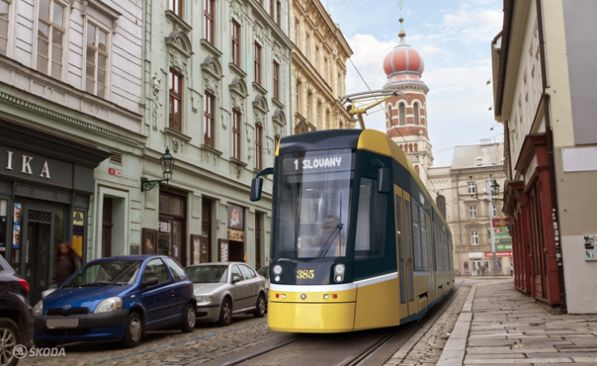A memorandum of mutual cooperation was signed in Plzen, Czech Republic, on May 24 aimed at turning the city into a centre for smart mobility with a living laboratory for testing autonomous vehicles by 2027, including smart LRVs.
The memorandum was signed by the city of Plzen, Plzen transport companies, Managing Information Technology of the City of Plzen and their partners: O2 Czech Republic, Intens Corporation, Škoda Transportation, Škoda Digital and the University of West Bohemia (UWB).
“Transport mobility of the future is not just self-driving cars, it is an entire ecosystem of interconnected solutions that lead to safer and smoother transport in cities,” the promoters of the project say.
Thanks to the 5G for five cities programme, in which Plzen is involved and where O2 is the technological partner of the Czech Ministry of Industry and Trade, O2 started installing a 5G network in Plzen last year with this now available in almost two thirds of the city. “The fast data download and sending, as well as low response and high data transmission security, are necessary to build and operate a functional infrastructure that will allow individual smart elements to communicate with each other," says Mr Jindřich Fremuth, CEO of O2 Czech Republic.
“Our 5G strategy is not just about building transmitters, it is primarily about real-world applications that can improve people’s lives and help industry,” says Mr Petr Očko, deputy minister of industry and trade.
Living laboratory
Plzen will become a living laboratory to test various models of smart transport in a real environment. “Residents and visitors to our city will be the first in the Czech Republic to experience a unique ecosystem connecting smart trams, intersections, stops, and even whole smart streets,” says Mr Vlastimil Gola, councillor for the smart city with Plzen City Council. The new ForCity Smart LRVs for Plzen, designed by Škoda Transportation, will be air-conditioned and will have five double doors on each side of the vehicle to allow quick boarding and alighting. There will be space for prams, wheelchairs and bicycles. The front of the LRV will be designed to better protect the driver and passengers in the event of a collision.
The three-section, bi-directional LRVs will be adapted to Plzeň’s requirements and will be able to negotiate the sharp curves and steep gradients in the city.

